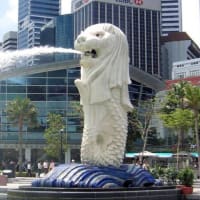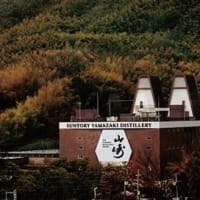
(1)Shinzo Abe’s inability to face history
(WPST社説・2013年4月27日)
Shinzo Abe’s inability to face history
FROM THE MOMENT last fall when Shinzo Abe reclaimed the office of Japanese prime minister that he had bungled away five years earlier, one question has stood out: Would he restrain his nationalist impulses — and especially his historical revisionism — to make progress for Japan?
Until this week, the answer to that question was looking positive. Mr. Abe has taken brave steps toward reforming Japan’s moribund economy. He defied powerful interest groups within his party, such as rice farmers, to join free-trade talks with the United States and other Pacific nations that have the potential to spur growth in Japan. He spoke in measured terms of his justifiable desire to increase defense spending.
歴史を直視できない安倍晋三首相
5年前、首相失格の烙印を押され石もて追われるように退陣した職位、その日本の首相の座に昨秋返り咲いた当初から安倍晋三氏には多方面から一つの輪郭明瞭な懸念が寄せられていた。それは、はたして安倍氏が自身の民族主義者としての衝動--就中、歴史修正主義に源泉する衝動--を自制するだろうか、もって、日本を前進させることができるのだろうかという疑問である。
今週まではこの懸念は良い方にはずれていた。なぜならば、瀕死の状態にある日本経済を改革する措置を安倍首相は果敢に繰り出してきたのだから。実際、米農家といった彼自身が率いている与党内の強力な利益集団の反対を歯牙にもかけず、安倍首相はアメリカおよび他の太平洋地域の諸国との自由貿易協議に参加する決断を下した。而して、この自由貿易協定は日本経済の成長を加速させるポテンシャルを帯びたものだ。加之、国防費の増額を訴える安倍首相の言説はよく練られ道理にかなったもの。
This week he seemed willing to put all the progress at risk. Asked in parliament whether he would reconsider an official apology that Japan issued in 1995 for its colonization of Korea in the past century, Mr. Abe replied: “The definition of what constitutes aggression has yet to be established in academia or in the international community. Things that happened between nations will look differently depending on which side you view them from.”
Officials in South Korea and China responded with fury, and understandably so. Yes, history is always being reinterpreted. But there are such things as facts. Japan occupied Korea. It occupied Manchuria and then the rest of China. It invaded Malaya. It committed aggression. Why, decades after Germany solidified its place in Europe by facing history honestly, are facts so difficult for some in Japan to acknowledge?
けれども、今週の安倍首相は違った。今週の彼の言動を見るに、日本の現状改善のために繰り出したこれまでのすべての成果が頓挫するとしてもやむをえないと、そう彼が考えているようにさえ感じられたから。すなわち、20世紀に日本が行った韓国の植民地化について1995年に日本が出した公式な謝罪【村山談話】を見直すつもりがあるかどうかを問い質した、日本の議会での【4月23日の参議院予算委員会での】質問に対して、安倍首相は「侵略という定義は、学界的にも国際的にも定まっていない。国と国の関係で、どちら側から見るかで違う」と返答したのだ(★)。
この発言に韓国・支那の政府関係者は怒りを露わにしたが、それは当然の反応と言うものだ。確かに、歴史は常に再解釈される性質のものではあろう。しかし、事実というものは存在している。日本が韓国を占領したこと。満州や満州以外の支那も日本に占領されたこと。マレー半島への日本の侵攻。畢竟、日本は侵略を行ったのだ。歴史に誠実に向き合うことでドイツがヨーロッパにおける確固たる地位を固めてから数十年が経つというのに、なぜ、事実を認めることがかくも難しい人々が日本には存在しているのか。

We understand that South Korea and, to an even greater extent, China at times stoke anti-Japan sentiment for domestic political purposes. China distorts its own history and, unlike Japan, in many cases does not allow conflicting interpretations to be debated or studied. But none of that excuses the kind of self-destructive revisionism into which Mr. Abe lapsed this week.
An inability to face history will prejudice the more reasonable goals to which South Korea and China also object. Mr. Abe has valid reasons, given the defense spending and assertive behavior of China and North Korea, to favor modernization of Japan’s defense forces. He has good reason to question whether Japan’s “self-defense” constitution, imposed by U.S. occupiers after World War II, allows the nation to come to the aid of its allies in sufficient strength. But his ability to promote reform at home, where many voters remain skeptical, and to reassure suspicious neighbors plummets when he appears to entertain nostalgia for prewar empire.
韓国が、そして、一層激しく支那が、内政上の課題を乗り切るために反日感情を折りに触れて煽ってきたことを我々【Editorial Board】が知らないわけではない。支那は自国の歴史を歪めて理解している。その歪んだ歴史認識と抵触する歴史の解釈を議論の俎上に載せたり研究することさえ許さない。そんな支那と日本とは全然異なっている。けれども、韓国や支那を巡るこれらの事情の一つだに、安倍首相が今週そこにはまり込んだ自滅的修正主義を彷彿とさせる言説を正当化することはない。
歴史を直視できなければ、より筋の通った国策目標の達成も、またぞろ、韓国や支那が抗い危うくなりかねない。すなわち、支那や北朝鮮の国防費増大や自己中的の行動様式を鑑みるとき、安倍首相が日本の軍事力の近代化を期すことは当然のことだ。あるいは、第二次世界大戦後にアメリカに押しつけられた、武力行使を「正当防衛」的の事態においてのみ認めているとも解される日本の憲法【Japan’s “self-defense” constitution】が、同盟国を支援すること、よって、同盟国支援のために充分な能力を日本が備えることを許容しているかどうか、この点を彼が問いなおそうとすることもまた当然のことだ。けれども、日本再生を推し進める彼の政治力、他方、日本に対する疑念をいまだ払拭できないでいる近隣諸国を安心させる彼の政治力は、戦前の日本帝国を古き良き時代として憧憬する気配が安倍首相に垣間見えた刹那急降下するだろう。少なくない有権者にとって、安倍首相がその信用を完全に取り戻したとはいえない日本の現状を想起するとき、我々【Editorial Board】はそう考えざるをえない。
★註:侵略の定義
国際法上「侵略」の定義は<開かれた構造>のままであり、「侵略という定義は、学界的にも国際的にも定まっていない」という安倍総理の認識は間違いではない。と、そう私は考えます。百花繚乱、千紫万紅、学説が千々に乱れた百家争鳴/百花斉放の状況にあることは言うまでもないでしょうが、蓋し、法的にも、
①国連憲章39条「侵略条項:act of aggression」は、ある事態が「侵略」か否かの判断は、国連安保理が個別具体的の案件毎に決定すると定めていること。②「侵略の定義に関する国連総会決議」には法的拘束力はなく、①の国連安保理の決定を拘束しないこと。③国連安保理のこれまでの「侵略」決定判断の蓄積からも明確かつ整合的な基準を帰納することはできないこと。
④「不戦条約」(1928年)は「侵略」の定義を欠いており、条約加盟国が一桁に留まった「侵略の定義に関する条約」(1933年)は<確立された国際法>とは呼べないこと。
⑤土台、「侵略の定義に関する国連総会決議」(1974年)どころか「国連憲章」(1945年)の発効前の事態、すなわち、第二次世界大戦とそれを一応の下限とする「帝国主義の時代」の、武力行使をともなうある国の対外進出を「侵略」と認定するについて①~④の契機はなんら法的の根拠にはならないこと。これらを鑑みるに安倍総理の認識は寧ろ中庸かつ正確と言えるのです。

<続く>



















